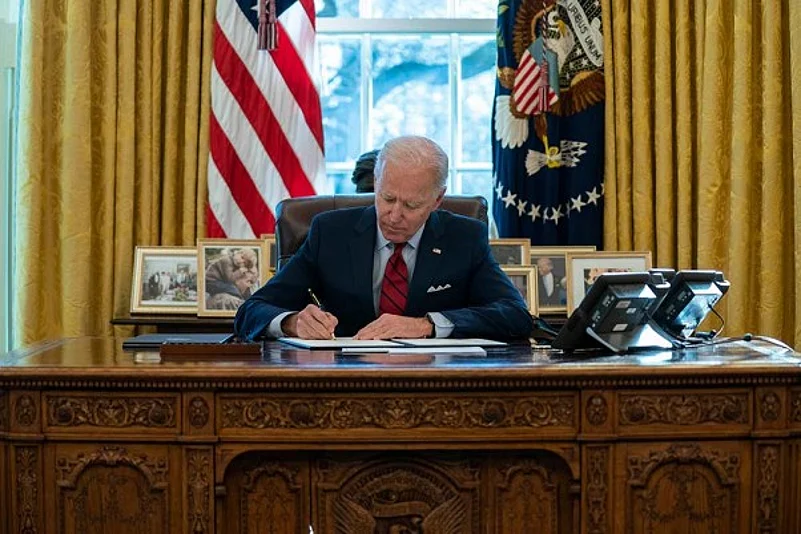President Joe Biden will speak at a virtual meeting of the world's major economies on Friday to discuss the coronavirus pandemic and global vaccine distribution, according to the White House.
Biden is expected to speak about the need for a global response to the pandemic and to recommit the U.S. to multilateral engagement, a stark contrast from President Donald Trump, who developed an isolationist foreign policy that saw the U.S. withdraw from major global agreements and alliances. Since entering office, Biden has reversed many of Trump's isolationist moves, including by rejoining the World Health Organization.
During his appearance at the G-7 meeting Friday, Biden will emphasize the need for global coordination on vaccine production, distribution and supplies, as well as global efforts to prepare for and protect against future pandemics. And he'll speak about the need for industrialized nations to ensure their economic recovery “is inclusive and benefits all workers, including women and members of historically disadvantaged groups,” the White House said in a statement Sunday.
The United States has also pledged to join the COVAX initiative, which is aimed at producing and distributing vaccines to developing countries.
Biden will also take the opportunity to discuss the need to update global rules “to tackle economic challenges such as those posed by China,” the White House said. Biden has pushed for the U.S. and its allies to negotiate a new trade pact to counter China's influence in the region.
The G-7 event marks Biden's first major multilateral engagement as president, and a return to the diplomacy that characterized so much of his tenure as vice president.
On the same day, Biden is set to participate in a “special edition” of the Munich Security Conference, a gathering of global leaders focused on defense. The television broadcast is taking the place of the previously scheduled conference, which was postponed due to the pandemic. As vice president, he attended the Munich Security Conference in 2009 and 2015.















